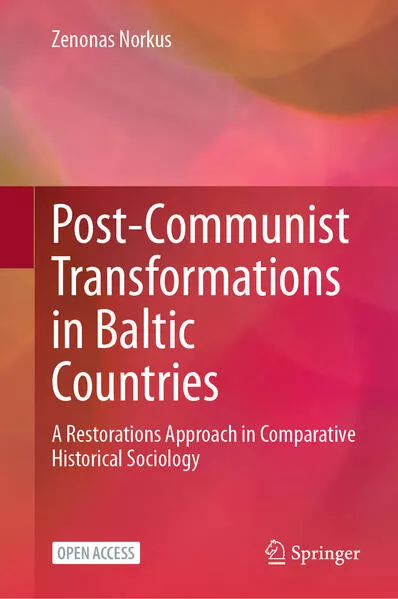
- Publikationen ca: 3
- Fragen & Antworten
Zenonas Norkus
Zenonas Norkus, PhD, Saint-Petersburg University (USSR), is a Professor of Comparative Historical Sociology at Vilnius University, Lithuania. He was a fellow at the Institute of Advanced Studies (Wissenschaftskolleg) Berlin (1998-1999) and a Fulbright research fellow at the Institute of Slavic, East European, and Eurasian Studies at the University of California, Berkeley (2003-2004). His book publications include Max Weber and Rational Choice (2001), Which Democracy, Which Capitalism? Post-communist Transformation in Lithuania from the Viewpoint of Comparative Historical Sociology (2008), On Baltic Slovenia and Adriatic Lithuania: A Qualitative Comparative Analysis of Patterns in Post-Communist Transformation (2012), Two Twenty-Year Periods of Independence: Capitalism, Class and Democracy in the First and Second Republics of Lithuania from the Point of View of Comparative Historical Sociology (2014), An Unproclaimed Empire: The Grand Duchy of Lithuania (2018).
Post-Communist Transformations in Baltic Countries
This Open access book provides a survey of the economic, health, and somatic progress of Baltic countries during the period 1918–2018, framed by the outline of the historical-sociological theory of modern social restorations, as originally conceived by the Austrian-American comparative historian Robert A.
Post-Communist Transformations in Baltic Countries
This Open access book provides a survey of the economic, health, and somatic progress of Baltic countries during the period 1918–2018, framed by the outline of the historical-sociological theory of modern social restorations, as originally conceived by the Austrian-American comparative historian Robert A.
Post-Communist Transformations in Baltic Countries
This Open access book provides a survey of the economic, health, and somatic progress of Baltic countries during the period 1918–2018, framed by the outline of the historical-sociological theory of modern social restorations, as originally conceived by the Austrian-American comparative historian Robert A.


